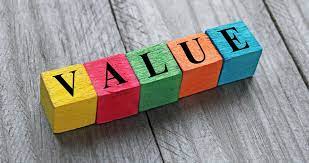You don’t stop learning after you leave school. Or I guess rather if you do stop learning you’ll quickly be left behind. That said, it’s pretty easy to get complacent with current skills and knowledge – especially if things are going well enough. While the saying ‘if its broke don’t fix it’ may still apply in most cases sometimes things are broke and you just don’t know it. Therefore, like a frog in a slowly boiling pot it’s easy to wait until it’s too late to react.
So that’s a somewhat pessimistic view point but hopefully it is motivational. Given that there is so much competition in today’s world how can we stay on top of our skills and expertise so that we don’t wake up one day and wonder how we got so far behind?
On an at least yearly basis go back to the basics. Remember how excited you were the first day on the job or the first day learning a new skill. Go back in time to recapture that but this time with greater wisdom. The firmer you have a grasp on the basics the easier it will be to build on top of them. In my experience though there’s really an 80/20 rule where you will use a specific set of skills 80% of the time. Therefore, it is important to determine what those basic skills are be really really good at them.
Do a gap analysis of what you do well and what you don’t do so well. Further, be honest with yourself and qualitatively rank your domain knowledge by category. While the rank doesn’t have to be precise the end goal is really to give yourself an indication of what you need to research and improve. Often times you know what these areas are intuitively but it’s nice to see it all laid out and categorized in a tangible way. Once you’ve done a personal analysis then create a self improvement plan. Self improvement is a never ending process so doing this on a regular basis and keeping it updated will ensure that you continue in the direction you want to go.
Find people that are smarter than you. Trust me they definitely exist. There’s so many people all over the world that have thought of things that you haven’t even considered. Now more than ever content is available to you ranging from books, courses, videos, to consulting – there’s really not much of a reason why you can’t find the information you are looking for. The real challenge though is how to sift through all the noise and find what is really going to get you to your next step in whatever you’re trying to do. To find believable people I find people that have successfully done what I am trying to learn about or alternatively a person that I would want to trade places with. A mentor will be able to get you as far as they are. So, learn as much as you can from as many people as possible to come up with your own best practice.
Help those around you grow. Once you have gained new knowledge or skills share that with others. It may seem counter intuitive but the more you teach others what you’re trying to learn the better you will know it yourself. Further when you have to explain something to someone else it will become apparent to you what you really understand and what you still need to work on. When you really understand a topic you explain it in a simple way to someone who knows nothing about it. When I start to get adequate knowledge on a subject I notice that I tend to use a lot of jargon and explain in really technical terms. When I just know a little bit about a subject then I speak about it vaguely or unintelligibly which doesn’t really make much sense to anyone (even possibly myself). Teaching someone else your learning is a good test to see where you fall into each of these three categories. After a discussion ask questions to determine if the information has sunk in and do checks for understanding. Then depending on the outcome modify your approach so that understanding can be shared. You’d be surprised sometimes how the person you are trying to teach may have something to teach you though so have a radically open mind and be open to explaining something in the way that best supports how someone else sees the world.
The good news is that learning is a never ending process that only ends one way – when you die. I’d expect though too that there are ways to learn and grow after that point but we just don’t know what we don’t know about that yet…


